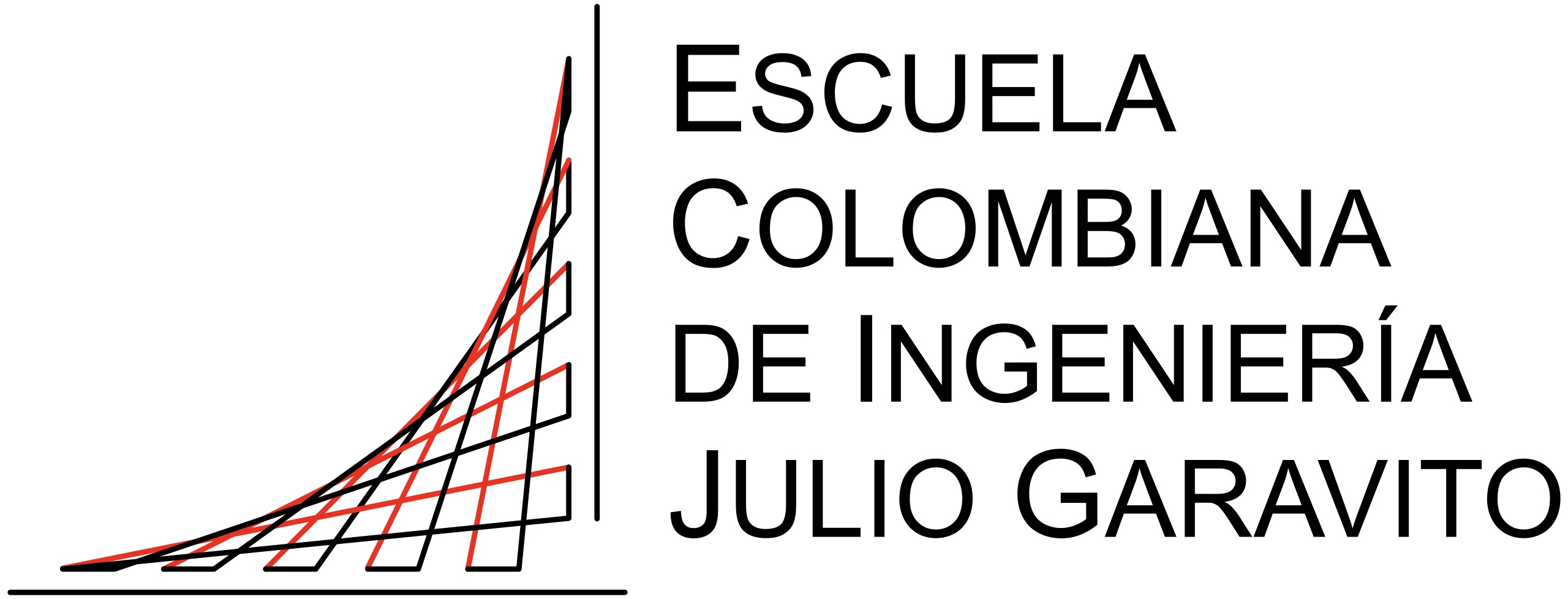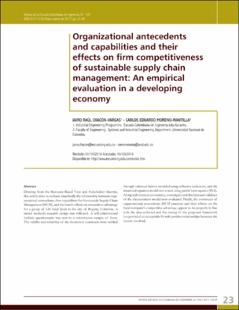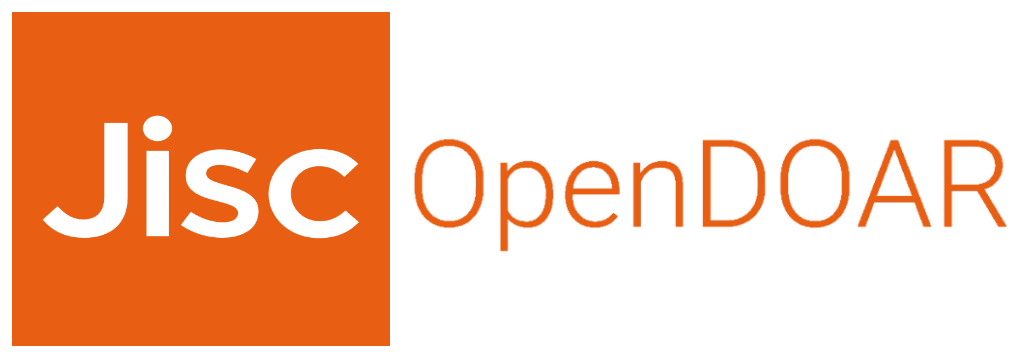Mostrar el registro sencillo del ítem
Organizational antecedents and capabilities and their effects on firm competitiveness of sustainable supply chain management: An empirical evaluation in a developing economy
| dc.contributor.author | Chacón Vargas, Jairo Raúl | |
| dc.contributor.author | Moreno Mantilla, Carlos Eduardo | |
| dc.date.accessioned | 2021-07-07T15:31:37Z | |
| dc.date.accessioned | 2021-10-01T17:37:35Z | |
| dc.date.available | 2021-07-07T15:31:37Z | |
| dc.date.available | 2021-10-01T17:37:35Z | |
| dc.date.issued | 2017 | |
| dc.identifier.issn | 0121-5132 | |
| dc.identifier.uri | https://repositorio.escuelaing.edu.co/handle/001/1622 | |
| dc.description.abstract | Drawing from the Resource-Based View and Stakeholder theories, this article aims to evaluate empirically the relationship between organizational antecedents, firm capabilities for Sustainable Supply Chain Management (SSCM), and the latter’s effects on competitive advantage for a group of 126 focal firms in the city of Bogotá, Colombia. A mixed methods research design was followed. A self-administered (online) questionnaire was sent to a convenience sample of firms. The validity and reliability of the theoretical constructs were verified through validated factors modeled using reflective indicators, and the structural equation model was tested using partial least squares (PLS). Along with internal consistency, convergent and discriminant validities of the measurement model were evaluated. Finally, the constructs of organizational antecedents, SSCM practices and their effects on the focal company’s competitive advantage appear to be properly in line with the data collected and the testing of the proposed framework has provided an acceptable fit with positive relationships between the factors involved. | eng |
| dc.description.abstract | A partir de la visión basada en recursos y las teorías de las partes interesadas, este artículo tiene como objetivo evaluar empíricamente la relación entre los antecedentes organizacionales, las capacidades de las empresas para la gestión sostenible de la cadena de suministro (SSCM) y los efectos de estas últimas sobre la ventaja competitiva para un grupo de 126 empresas focales en el ciudad de Bogotá, Colombia. Se siguió un diseño de investigación de métodos mixtos. Se envió un cuestionario autoadministrado (en línea) a una muestra de empresas de conveniencia. La validez y confiabilidad de los constructos teóricos se verificaron a través de factores validados modelados usando indicadores reflexivos, y el modelo de ecuaciones estructurales se probó usando mínimos cuadrados parciales (PLS). Junto con la consistencia interna, se evaluaron las validezes convergente y discriminante del modelo de medida. Finalmente, las construcciones de los antecedentes organizacionales, las prácticas de SSCM y sus efectos en la ventaja competitiva de la empresa focal parecen estar adecuadamente en línea con los datos recopilados y la prueba del marco propuesto ha proporcionado un ajuste aceptable con relaciones positivas entre los factores involucrados. | spa |
| dc.format.extent | 8 páginas | spa |
| dc.format.mimetype | application/pdf | spa |
| dc.language.iso | eng | spa |
| dc.publisher | Escuela Colombiana de Ingeniería Julio Garavito | spa |
| dc.source | http://www.escuelaing.edu.co/revista.htm | spa |
| dc.title | Organizational antecedents and capabilities and their effects on firm competitiveness of sustainable supply chain management: An empirical evaluation in a developing economy | eng |
| dc.type | Artículo de revista | spa |
| dc.description.notes | 1. Industrial Engineering Programme, Escuela Colombiana de Ingeniería Julio Garavito. 2. Faculty of Engineering, Systems and Industrial Engineering Department, Universidad Nacional de Colombia. jairo.chacon@escuelaing.edu.co - cemorenoma@unal.edu.co | spa |
| dc.type.version | info:eu-repo/semantics/publishedVersion | spa |
| oaire.accessrights | http://purl.org/coar/access_right/c_abf2 | spa |
| oaire.version | http://purl.org/coar/version/c_970fb48d4fbd8a85 | spa |
| dc.publisher.place | Bogotá, Colombia. | spa |
| dc.relation.citationedition | N.° 105 Enero-marzo de 2017, pp. 23-29. | spa |
| dc.relation.citationendpage | 29 | spa |
| dc.relation.citationstartpage | 23 | spa |
| dc.relation.citationvolume | 105 | spa |
| dc.relation.indexed | N/A | spa |
| dc.relation.ispartofjournal | Escuela Colombiana de Ingeniería | spa |
| dc.relation.references | Winston, A.S.: The Big Pivot: Radically Practical Strategies for a Hotter, Scarcer, and a More Open World. Harvard Business School Publishing, Boston (2014) | spa |
| dc.relation.references | Beske, P., Seuring, S.: Putting sustainability into supply chain management. Supply Chain Manag. 19 (2014) 322-331 | spa |
| dc.relation.references | Seuring, S., Müller, M.: From a Literature Review to A Conceptual Framework For Sustainable Supply Chain Management. J. Clean Prod. 16 (2008) 1699-1710 | spa |
| dc.relation.references | Guang Shi V., Baldwin, J., Cucchiella, F.: Natural Resource Based Green Supply Chain Management. Supply Chain Manag. 17 (2012) 54-67 | spa |
| dc.relation.references | Visser, W.: Corporate Social Responsibility in Developing Countries. In: Crane, A., McWilliams, A., Matten, D., Moon, J., Siegel, D.S. (eds.): Corporate Social Responsibility. Oxford University Press, New York (2008) 473-499 | spa |
| dc.relation.references | Chacón-Vargas. J.R., Moreno-Mantilla, C.: Sustainable Supply Chain Management Capabilities: A Review From The Resourcebased View, The Dynamic Capabilities and Stakeholder Theories. LAJMSD. 1 (2014) 323-343 | spa |
| dc.relation.references | Barney, J.: Firm Resources And Sustained Competitive Advantage. J. Manage. 17 (1991) 99-120 | spa |
| dc.relation.references | Wood, D.J., Jones, R.E.: Stakeholder Mismatching: A Theoretical Problem in Empirical Research on Corporate Social Performance. Int. J. Manag. Organ. Stud. 3 (1995) 229-267 | spa |
| dc.relation.references | Freeman, R.E., Wicks, A.C., Parmar, B.: Stakeholder Theory And “The Corporate Objective Revisited”. Organ. Sci. 15 (2004) 364-369 | spa |
| dc.relation.references | Zhu. Q., Sarkis, J., Lai, K.H.: Examining the Effects of Green Supply Chain Management Practices and Mediations on Performance Improvements. Int. J. Prod. Res. (2012) 1377-1394 | spa |
| dc.relation.references | Ahi, P., Searcy, C.: Measuring Social Issues in Sustainable Suppluy Chains. Meas. Bus. Excell. 19 (2015) 33-45 | spa |
| dc.relation.references | Sarkis, J., Gonzalez-Torre, P., Adenso-Diaz, B.: Stakeholder Pressure And The Adoption Of Environmental Practices: The Mediating Effect Of Training. J. Oper. Manag. 28 (2010) 163-176 | spa |
| dc.relation.references | Shang K.C., Lu, C.S., Li, S.: A Taxonomy Of Green Supply Chain Management Capability Among Electronics-related Manufacturing Firms In Taiwan. J. Environ. Manage. 91 (2010) 1218-1226 | spa |
| dc.relation.references | Johansson, G.: Success Factors For Integration Of Ecodesign In product Development A Review Of State Of The Art. Environ. Manag. Health. 13 (2002) 98-107 | spa |
| dc.relation.references | Luttropp, C., Lagerstedt, J.: EcoDesign And The Ten Golden Rules: Generic Advice For Merging Environmental Aspects Into Product Development. J. Clean. Prod. 14 (2006) 1396-1408 | spa |
| dc.relation.references | McKinnon, A.: Environmental Sustainability: A New Priority For Logistics Managers. In: McKinnon, A., Browne, M., Whiteing, A. (eds.): Green Logistics: Improving The Environmental Sustainability Of Logistics. Second edn. Kogan Page, London, Philadelphia and New Delhi (2012) 3-29 | spa |
| dc.relation.references | Eltayeb, T.K., Zailani, S., Jayaraman, K.:The Examination On The Drivers For Green Purchasing Adoption Among EMS 14001 Certified Companies In Malaysia. JMTM 21 (2010) 206-225 | spa |
| dc.relation.references | Vachon, S., Klassen, R.D.: Environmental management and Manufacturing Performance: The Role Of Collaboration In The Supply Chain. Int. J. Prod. Econ. 111 (2008) 299-315 | spa |
| dc.relation.references | Meade, L., Sarkis, J.: A Conceptual Model For Selecting And Evaluating Third-party Reverse Logistics Providers. Supply Chain Manag. 7 (2002) 283-295 | spa |
| dc.relation.references | ISO: Guidance on Social Responsibility. (2010) | spa |
| dc.relation.references | Yawar, S.A., Seuring, S.: Management of Social Issues In Supply Chains: A Literature Review Exploring Social Issues, Actions and Performance Outcomes. J. Bus. Ethics. doi:10.1007/ s10551-015-2719-9 (2015) 1-23 | spa |
| dc.relation.references | Klassen, R.D.: Improving Social Performance In Supply Chains: Exploring Practices And Pathways To Innovation. Flanders DC (2009) | spa |
| dc.relation.references | Peloza J., Shang. J.: How Can Corporate Social Responsibility Activities Create Value For Stakeholdrs? A Systematic Review. J. Acad. Market. Sci. 39 (2011) 117-135 | spa |
| dc.relation.references | Burke, E.M.: Corporate Community Relations. Praeger Publishers, Westport, Connecticut and London (1999). | spa |
| dc.relation.references | Maignan, I.., Hillebrand, B., McLister, D.: Managing Sociallyresponsible Buying: How to Integrate Non-economic Criteria Into The Purchasing Process. EMJ. 20 (2002) 641-648 | spa |
| dc.relation.references | Leire, C., Mont, O.: The Implementation Of Socially Responsible Purchasing. Corp. Soc. Resp. Env. Ma. 17 (2010) 27-39 | spa |
| dc.relation.references | Chen, Y.S., Chang, C.H.:Enhance Environmental Commitments And Green Intangible Assets Toward Green Competitive Advantages: An Analysis Of Structural Equation Modeling (SEM). Qual. Quant. 47 (2013) 529-543 | spa |
| dc.relation.references | Arend, R.: Social and Environmental Performance at SMEs: Considering Motivations, Capabilities, and Instrumentalism. J. of Bus. Ethics. 125 (2014) 541-561 | spa |
| dc.relation.references | Sharma, S., Vredenburg, H.: Proactive Corporate Environmental Strategy and the Development of Competitive Valuable Organizational Capabilities. Strategic. Manage. J. 19 (1998) 729-753 | spa |
| dc.relation.references | Floyd, S.W., Wooldridge, B.: Dinosaurs or Dynamos? Recognizing Middle Management’s Strategic Role. Acad. Manage. Exec. 8 (1994) 47-57 | spa |
| dc.relation.references | McFadden, K.L., Henagan, S.C., Gowen III, C.R.: The Patient Safety Chain: Transformational Leadership’s Effect On Patient Safey Culture, Initiatives, And Outcomes. J. Oper. Manag. 27 (2009) 390-404 | spa |
| dc.relation.references | Bowen, F.E., Cousins, P.D., Lamming, R.C., Faruk, A.C.: The Role of Supply Management Capabilities in Green Supply. Prod. Oper. Manag. 10 (2001) 174-189 | spa |
| dc.relation.references | Wu, F., Yeniyurt, S., Kim, D., Cavusgil, T.: The Impact Of Information Technology On Supply Chain Capabilities And Firm Performance: A Resource-based View. Ind. Market. Manag. 35 (2006) 493-504 | spa |
| dc.relation.references | Day, M., Lichtenstein, S., Samouel, P.: Supply Management Capabilities, Routine Bundles And Their Impact On Firm Performance. Int. J. Prod. Econ. 164 (2015) 1-13 | spa |
| dc.relation.references | Tobescu, C., Seuring, S.: Internal Enablers for the Implementation of Sustainable Supply Chain Risk Management Systems. In: Uwe C, Hompel M, de Souza R (eds.): Logistics Management: Products, actors, Technology - Proceedings of the German Academic Association for Business Research, Bremen, 2013. Springer, Switzerland (2015) 17-26 | spa |
| dc.relation.references | Fornell, C.G., Larcker, D.F.: Evaluating Structural Equation Models With Unobservable Variables And Measurement Error. J. Marketing. Res. 18 (1981) 39-50 | spa |
| dc.relation.references | Hair, Jr., J.F., Black, W.C., Babin, B.J., Anderson, R.E.: Multivariate Data Analysis. 7rd edn. Prentice Hall, Upper Saddle River (2010) | spa |
| dc.relation.references | Hair, J.F., Ringle, C.M., Sarstedt, M.: PLS-SEM: Indeed a Silver Bullet. JMPT. 1 (2011) 139-151 | spa |
| dc.relation.references | Hair, J.F., Hult, G.T.M., Ringle, C.M., Sarstedt, M.: A Primer On Partial Least Squares Structural Equation Modeling (PLS-SEM). SAGE, Thousand Oaks (2014) | spa |
| dc.relation.references | Henseler, J., Fassot, G.:Testing Moderating Effects In PLS Path Models: An Illustration Of Available Procedures. In: Esposito Vinzi, V., Chin, W.W., Henseler, J., Wang, H. (eds.): Handbook of Partial Least Squares: Concepts, Methods And Applications. Springer Handbooks of Computational Statistics, New York (2010) 713-735 | spa |
| dc.relation.references | Liu, H., Ke, W., Wei, K.K., Gu, J., Chen, H.: The Role Of Institutional Pressures And Organizational Culture In The Firm’s Intention To Adopt Internet-enabled Supply Chain Management Systems. J. Oper. Manag. 28 (2010) 372-384 | spa |
| dc.relation.references | Marshall, D., McCarthy, L., Heavey, C., McGrath, P.: Environmental and Social Supply Chain Management Sustainability Practices: Construct Development and Measurement. Prod. Plan. Control. 26 (2014) 673-690 | spa |
| dc.relation.references | Marshall, D., McCarthy, L., McGrath, P., Claudy, M.: Going Above and Beyond: Hoe Sustainability Culture And Entrepreneurial Orientation Drive Social Sustainability Supply Chain Practice Adoption. Supply. Chain. Manag.20 (2015) 434-454 | spa |
| dc.relation.references | Ates, M.A., Bloemhof J., van Raaij, E.M., Wynstra, F..: Proactive Environmental Strategy in a Supply Chain Context: The Mediating Role of Investments. Int. J. Prod. Res. 50 (2012) 1079-1095 | spa |
| dc.relation.references | Harms, D., Hansen, E.G., Schaltegger, S.: Strategies in Sustainable Supply Chain Management: An Empirical Investigation of Large German Companies. Corp. Soc. Resp. Env. Ma. 20 (2013) 205-218 | spa |
| dc.rights.accessrights | info:eu-repo/semantics/openAccess | spa |
| dc.subject.armarc | Cadena de valor | spa |
| dc.subject.armarc | Value chain | eng |
| dc.subject.armarc | Cadena de valor empresarial | spa |
| dc.subject.armarc | Business value chain | eng |
| dc.subject.armarc | Competencia económica | spa |
| dc.subject.armarc | Competition | eng |
| dc.subject.armarc | Economía - Bogotá | spa |
| dc.subject.armarc | Economy - Bogota | eng |
| dc.subject.armarc | Desarrollo económico | spa |
| dc.subject.armarc | Economic development | eng |
| dc.type.coar | http://purl.org/coar/resource_type/c_2df8fbb1 | spa |
| dc.type.content | Text | spa |
| dc.type.driver | info:eu-repo/semantics/article | spa |
| dc.type.redcol | http://purl.org/redcol/resource_type/ART | spa |
Ficheros en el ítem
Este ítem aparece en la(s) siguiente(s) colección(ones)
-
AI - Centro de Investigación en Manufactura y Servicios – CIMSER [49]
Clasificación: B- Convocatoria 2018.










